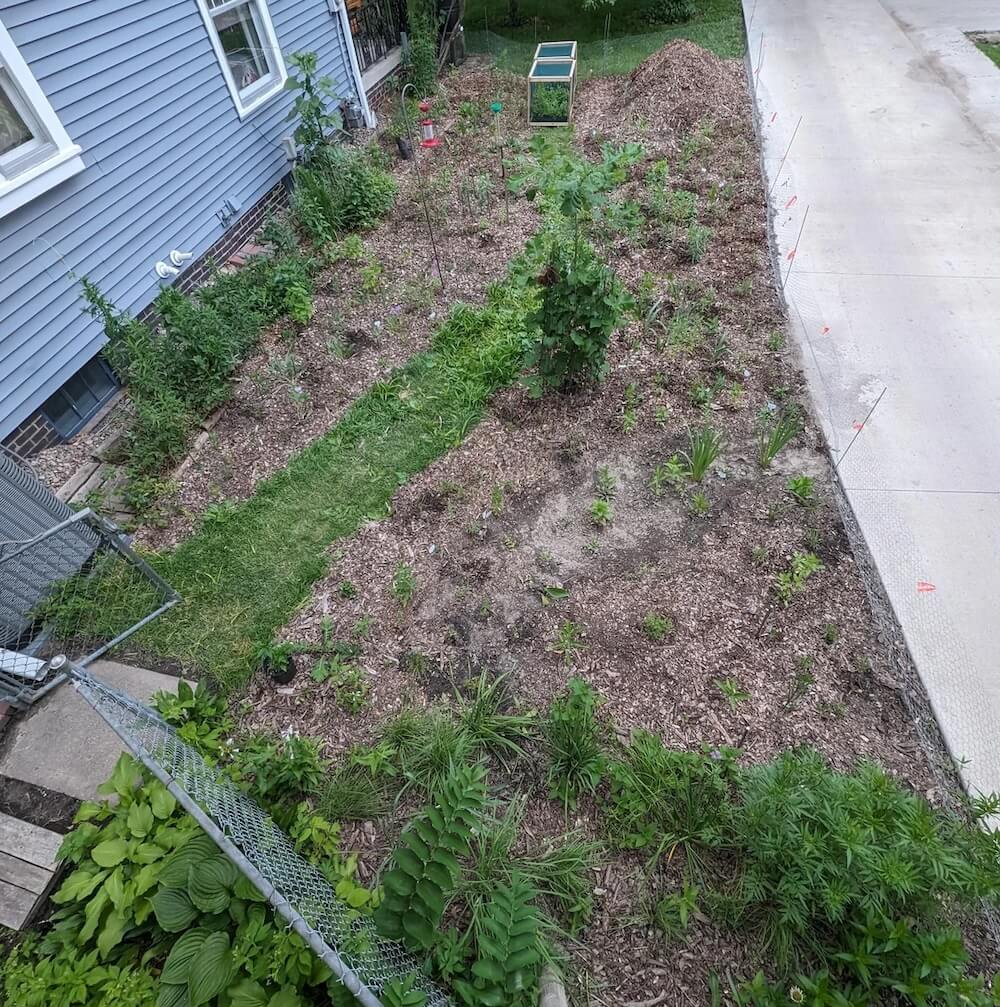Many gardeners share their before-and-after photos, but this gardener shared their journey on Reddit, with all the ups and downs.
This gardener shared several images and details of their journey to creating a native garden in the r/NativePlantGardening subreddit.


The original poster titled it: "2024 Year in review (Central Iowa)."
The OP's journey started in the summer of 2023 when they spoke to an arborist and bought some woodchips. They started planting the seeds in January. Their first image from April doesn't have anything blooming yet, nor did the first June image. By mid-June, the flowers started blossoming.
By July 23, the gardener got pollinator visitors: "While it didn't stand up straight it still was fantastically popular!!"
The images continue throughout the year, showcasing an array of colorful plants, with the last one on Nov. 5. They noted that they planted about 800 plants in a bed of about 900 square feet.
The OP was surprised with the blue sage that bloomed from Aug. 6 to Oct. 27.
They ended the post with a list of things they learned, questions, things they would do differently, and plans for next year.
As this gardener has found, rewilding your yard can be highly rewarding. They enjoyed checking out what was blooming, walking their path, and seeing "whose eating who and what's visiting what!"
🗣️ If you were to switch from a grass lawn to a more natural option, which of these factors would be your primary motivation?
🔘 Making it look better 🌱
🔘 Saving money on water and maintenance 💰
🔘 Helping pollinators 🐝
🔘 No way I ever get rid of my lawn 🚫
🗳️ Click your choice to see results and speak your mind
While native plants can improve the aesthetic of your home, they can also save you money. Native plants require less water, pesticides, and fertilizers. So, while starting a garden can be a lot, the maintenance is less.
Native plants are also crucial for the ecosystem. They attract insects, birds, and other animals that pollinate them, which helps the plants reproduce.
Additionally, pollinators are vital for the food humans eat. According to the U.S. Department of Agriculture, almost 80% of the crops grown worldwide for food and plant-based products require pollination.
Many Redditors in the comments hope to have their own native gardens one day.
One user said: "Makes me want to try … as well!"
Another commented: "The progress is inspiring!"
Join our free newsletter for easy tips to save more and waste less, and don't miss this cool list of easy ways to help yourself while helping the planet.









